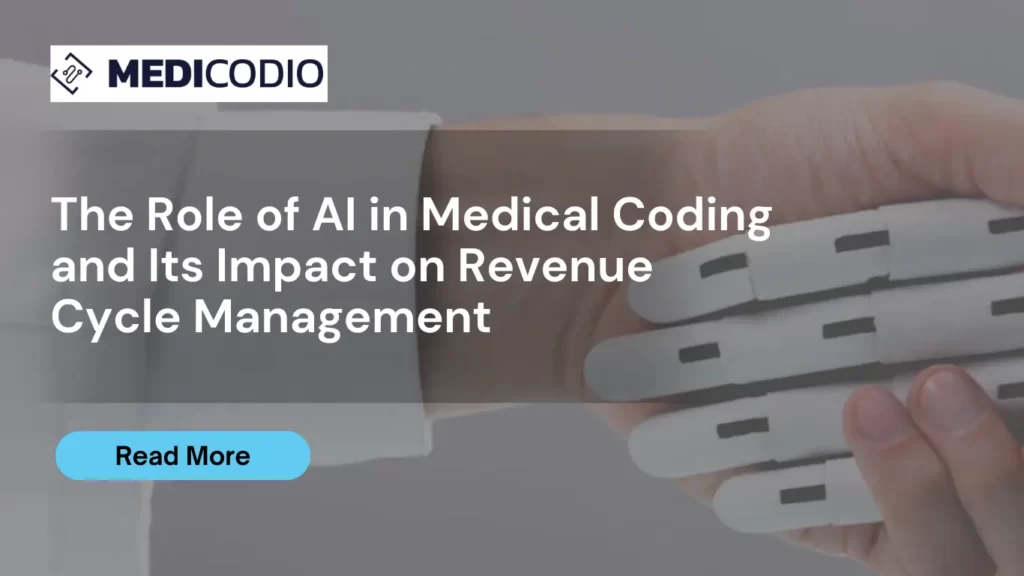There has always been a lot of demand for healthcare professionals to offer high-quality care. The complex interplay of rising costs, regulatory demands, and the need for streamlined revenue cycles has prompted healthcare providers to seek specialized assistance. For that reason, providers are increasingly turning towards Revenue Cycle Management (RCM) companies to address critical financial challenges.
However, RCM companies also struggle with assigning appropriate billing codes to medical services provided to patients. The medical coding aspect of RCM is a time-consuming and complex task. It requires skilled professionals to sift through high volumes of medical records and follow intricate coding rules. It is prone to errors that can lead to denials, delayed payments, and even compliance issues. Fortunately, advances in artificial intelligence (AI) are transforming the coding process, making it faster, more accurate, and less prone to errors.
One example of an AI-powered tool is MediCodio. It can help RCM companies improve coding accuracy and optimize revenue cycle management.
Here are some ways AI-powered coding tools can benefit RCM companies:
· Improved accuracy: Stats show that automated medical coding tools can reduce coding errors by up to 42%. By using NLP to analyze medical records, AI-powered coding tools identify key information and ensure that the appropriate billing codes are assigned to each service.
· Faster coding: AI-powered coding tools analyze medical records faster than human coders. This frees up time for coders to focus on more complex tasks. According to a survey by HIMSS Analytics, AI-powered coding tools can reduce coding times by up to 50%.
· Better compliance: Compliance with coding rules and regulations is essential for RCM companies. AI-powered coding tools can help ensure compliance by applying coding rules consistently across all medical records. This can help RCM companies avoid penalties and reduce the risk of audits.
· Improved revenue cycle management: With improved accuracy and reduced errors, AI helps RCM companies optimize their revenue cycle management. According to a study by the Healthcare Financial Management Association, optimizing the revenue cycle can improve collections by up to 10%.
Integrating AI-powered coding tools like MediCodio into existing RCM workflows can be a challenge. So here are some practical tips for integrating AI-powered coding tools into RCM workflows:
· Choose the right tool: Look for a tool that is easy to use, accurate, and scalable. MediCodio is user-friendly, integrates seamlessly with existing EHR systems, and can be customized to meet the needs of different medical specialties.
· Train your staff: While AI-powered coding tools can help streamline the coding process, they require human oversight. Train staff on how to use the tool effectively and ensure that they understand the coding rules and regulations.
· Monitor performance: Monitoring performance helps in identifying any issues or areas for improvement.
Final Words
Medical coding tools like MediCodio help RCM companies improve coding accuracy, reduce errors, and optimize revenue cycle management. By integrating AI-powered coding tools into existing workflows and following best practices, RCM companies can achieve a higher level of efficiency and profitability. With AI continuing to advance, it’s clear that the future of medical coding lies in the hands of these innovative technologies.





